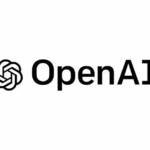Nvidia’s Chief Executive Officer Jensen Huang has shared his perspective on artificial intelligence’s impact on employment, emphasizing that while AI can dramatically improve certain aspects of work, it will not completely replace human workers.
Speaking at Nvidia’s AI Summit in Mumbai, India, Huang addressed growing concerns about AI’s role in the workplace. He stated that artificial intelligence currently lacks the capability to fully replicate human work functions.
Job Enhancement Through AI
According to Huang, AI’s impact on job functions varies depending on the specific role. He indicated that for some positions, AI could perform about 20% of the tasks with significantly higher efficiency, while in other cases, it might handle up to 50% of job responsibilities more effectively. He sees AI doing some tasks 1,000 times better but that won’t be enough to replace the humans in the workplace completely.
When questioned about AI potentially taking over his own position as CEO, Huang responded with a firm rejection of the possibility. This stance differs from some other business leaders, as a survey by edX revealed that 49% of executives believed their jobs could be mostly or entirely replaced by AI.
Future Workplace Integration
Huang envisions a future where AI serves as an assistant to human workers, helping to streamline tasks and increase productivity. However, he warned that the real challenge isn’t AI replacing workers directly, but rather competition from colleagues who effectively utilize AI to enhance their productivity.
This perspective aligns with recent research findings. A study from MIT’s Computer Science and Artificial Intelligence Laboratory indicated that only 23% of workers’ compensation currently designated as exposed to AI computer vision would be cost-effectively replaced by AI systems.
Current Limitations and Challenges
Industry experts point out that current AI technology faces significant limitations. At the 2024 World Economic Forum in Davos, Intel CEO Pat Gelsinger highlighted that existing AI systems lack reasoning capabilities and are prone to errors.
The impact of AI on employment remains a topic of ongoing discussion. A Goldman Sachs report suggested that AI could affect the equivalent of 300 million jobs, particularly in administrative sectors. However, the same report also noted AI’s potential to generate new employment opportunities and boost workforce productivity.
According to McKinsey partner Kweilin Ellingrud, the technology could lead to approximately 12 million occupational transitions by 2030, indicating a shift in job roles rather than wholesale replacement of human workers.
Huang has consistently promoted the integration of AI assistants in the workplace, expressing his vision for Nvidia to work with “100 million AI assistants.” He describes a future workplace where artificial intelligence and human workers collaborate effectively, creating a mixed workforce of both digital and biological entities.
(Image by NVIDIA Taiwan)








